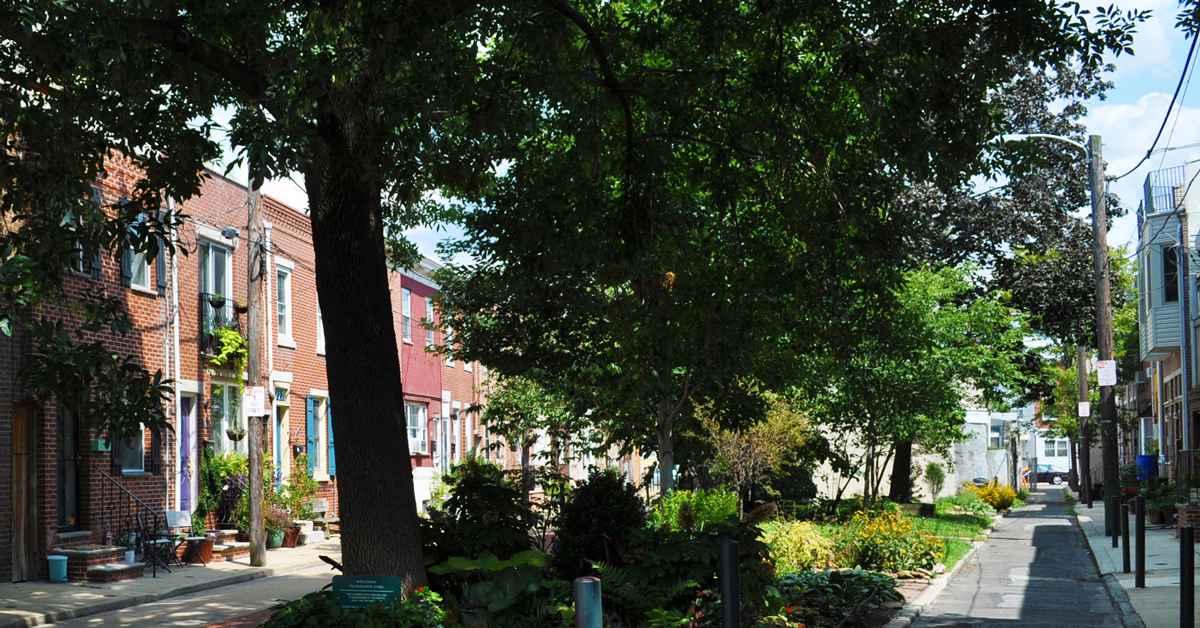In Pennsylvania, there are different laws governing boundary, private property, and street trees that landowners and municipal authorities need to be aware of.
If you have more questions, please contact us to schedule a consultation with Gilbert High Jr.
Back in the day, municipalities added street trees along roads for one important reason. It was felt that horses needed a place to get out of the sun and cool off. Presently, trees have been shown to have many more positive effects to modern day living.
Trees are an essential part of any municipality, providing a range of ecological, economic, and social benefits, such as improving air quality, reducing stormwater runoff, lowering energy costs, and enhancing property values. However, with these benefits comes the responsibility to properly maintain and manage trees in public spaces, including those in residential communities.
Don't see your answer here? Visit our in-depth guide on Pennsylvania Tree laws.
Street Tree Laws
Shade tree commissions were created to maintain street trees within the public right of way, with the cost of maintenance falling on the municipality. While the abutting property owner may be compelled to remove or maintain trees, the liability for hazardous trees remains with the municipality. Municipal authorities also have a responsibility to ensure that trees are not hazardous in the first place. If a branch from a municipal tree falls and causes damage or injury, the municipality can be held liable if they knew or had reason to know that there was a dangerous situation created by that tree.
The responsibility for removing hazard trees falls on the municipality, not the property owner. Property owners are responsible for maintaining the sidewalk, especially if the municipal street tree causes disruption, such as broken or lifting pavement. It is considered best practice for municipalities to maintain an inventory of sick trees to inform their decisions. In Pennsylvania, the role of shade tree commissions in virtually every municipality is to maintain street trees, except in home rule communities like Philadelphia, where an ordinance compels the abutting property owner to maintain the trees.
Boundary Tree Laws
Boundary trees, also known as trees along property lines, have a separate set of laws governing their maintenance. The general rule is that both property owners share ownership of the tree, and neither one can unilaterally cut down the tree without the other's permission. Both owners also share responsibility for the care and maintenance of the tree.
However, if the tree is entirely on one side of the property line, then that owner is solely responsible for the tree. They can cut down the tree or trim its branches without the permission of their neighbor, but they are also solely responsible for any damage that the tree causes to their neighbor's property. In the 1990s, the Commonwealth court ruled that overhanging branches and roots are considered a trespass, and the neighbor whose property is being trespassed upon can sue the owner of the tree for the cost of removing the branches or roots. This also applies to cases where the property owner's tree roots are causing damage to a neighbor's property.
Private Property Tree Laws
There are no laws in Pennsylvania requiring private property owners to maintain trees on their land. However, some municipalities have ordinances that regulate tree removal or trimming on private property. For instance, in Philadelphia, you must obtain a permit before removing any tree with a trunk diameter of 12 inches or greater. Failure to comply with these ordinances can result in fines and legal action.
If a tree on private property poses a danger to the public, the local government can require the landowner to remove or maintain the tree. It's crucial to understand the laws and regulations governing trees in your area to avoid legal trouble and ensure that your trees are cared for properly.
If you have more questions, please contact us to schedule a consultation with Gilbert High Jr.
Trees are essential for the development and beautification of a municipality. Municipal authorities and property owners have a shared responsibility to maintain and manage street trees and those in public spaces and residential communities. It's crucial to understand the laws and regulations governing street, boundary, and private property trees in Pennsylvania.
If you're unsure about your rights and responsibilities regarding trees on your property or your neighbor's, it's best to consult with a knowledgeable attorney who specializes in municipal tree law. By doing so, you can avoid legal trouble and ensure that your trees are cared for properly.
